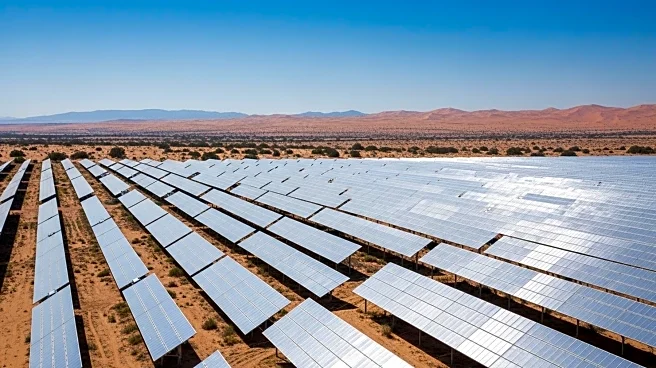What is the story about?
What's Happening?
China's large-scale solar parks in desert regions are creating ecological shifts by altering local microclimates. These solar panels reduce soil temperatures and increase moisture, promoting vegetation growth and healthier soil conditions. The changes are subtle but significant, as they enhance plant and microbial resilience in arid environments. The International Renewable Energy Agency emphasizes the importance of site design in maximizing these ecological benefits.
Why It's Important?
The ecological benefits of solar parks extend beyond clean energy production, offering potential solutions for land restoration in degraded areas. By improving soil and vegetation health, these projects can contribute to biodiversity conservation and climate resilience. This approach highlights the potential for renewable energy projects to deliver environmental co-benefits when carefully designed and managed.
What's Next?
Continued research and monitoring will be essential to understand the long-term impacts of solar parks on desert ecosystems. Adaptive management practices, such as adjusting panel configurations and maintaining vegetation, will be crucial to maximizing ecological benefits. The success of these projects could serve as a model for similar initiatives in other arid regions.
















